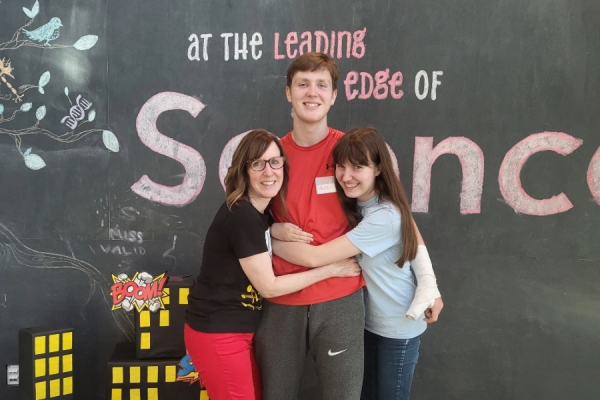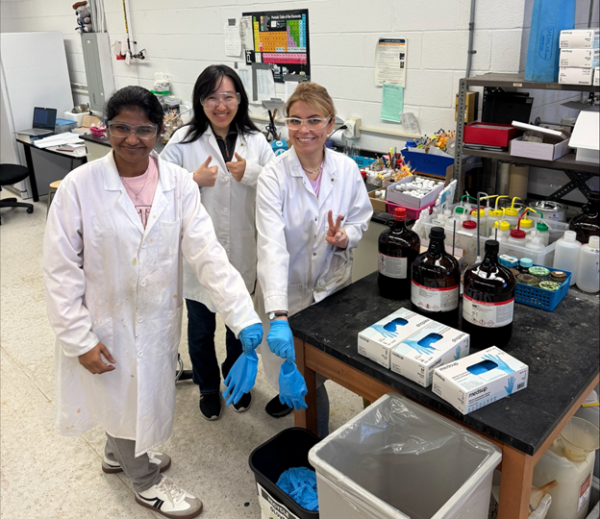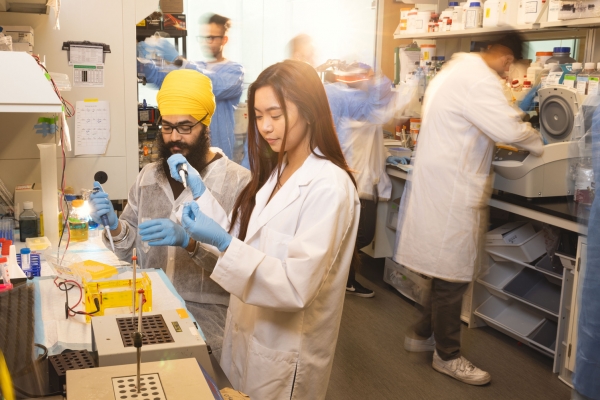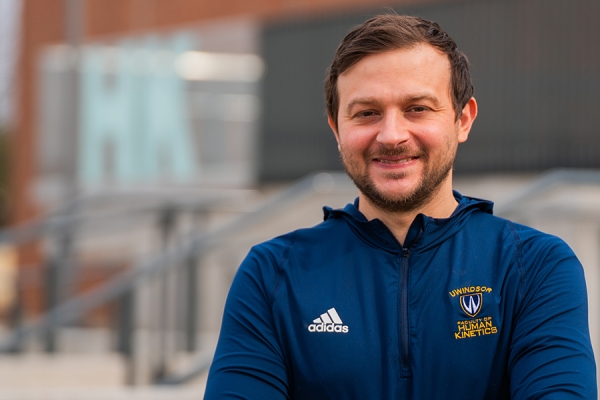 Karen Metcalfe, Blake and Mckenna Lumley in the CORe atrium at the University of Windsor.
Karen Metcalfe, Blake and Mckenna Lumley in the CORe atrium at the University of Windsor.
Fifteen years ago, everything changed for Mckenna Lumley.
At just four years old, Lumley was diagnosed with a juvenile benign pilocytic astrocytoma (JPA), a rare childhood brain tumour.
Her family started to notice something was off when she was in the bath and unable to move her head back. This limited mobility progressed into her screaming due to neck pain and vomiting. While doctors were convinced Lumley was suffering from a flu bug, her mother, WE-SPARK assistant director Karen Metcalfe, knew something more was going on.



